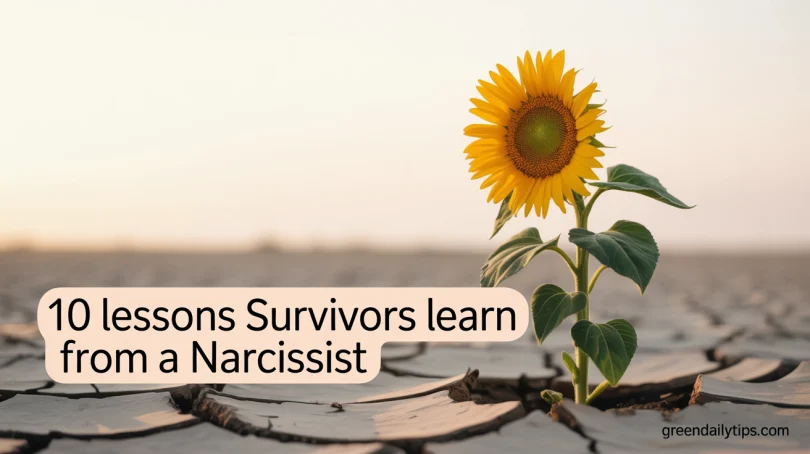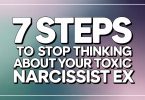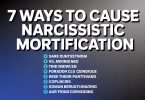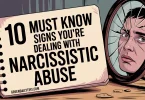I would like to share with you 10 real-life lessons that one can learn from surviving a relationship with a narcissist. Most survivors who have crossed the bridge towards healing their lives inform us that their experience has been a blessing and a curse in disguise. Yes, it was most certainly hell, but also an eye-opener and a life-altering lesson that eventually resulted in a saner and more meaningful life.
This is contrary to one’s intuition, and to the recovery from narcissistic abuse, it may even be invalidating, as though it downplays the deep effects of such a relationship. But please listen to me, that’s not what this is about. As the saying goes, “What doesn’t kill you makes you stronger,” or “It always gets worse before it gets better.” Survivors somehow acquire a new wisdom that protects them here in this world, unlearning or learning some valuable lessons to be in peace and, in the end, harmonious relationships.
1. Acceptance: Embracing Radical Change
The first lesson is acceptance. After prolonged exposure to a narcissist and realizing you’re trapped in a toxic cycle, you reach a point where you accept that the narcissist will not change. To alter the situation, you can only change yourself. This is often referred to as radical acceptance, a crucial step in moving on from a narcissistic relationship.
Overthinking keeps you stuck, and without accepting that what’s done is done, moving forward is nearly impossible. Some may call this forgiveness, but I refrain from using that term, as it means different things to different people and can complicate legal matters.
From my experience, forgiveness came later in my healing journey, after understanding myself and the circumstances that brought us together. Realizing that a narcissist is trapped in their cycle of misery and abuse made it easier for me to forgive. It was a “live and let live” approach that allowed me to let go and move on.
2. Self-Awareness: Recognizing the Problem
With acceptance comes self-awareness. You wouldn’t recognize you’re stuck in an unchangeable situation without noticing something is deeply wrong, either around you or within yourself.
It might start as a sudden feeling of unease or confusion, prompting reflection and questions. Every relationship with a narcissist has a wake-up call at some point. This self-awareness leads to acknowledging your responsibility, a vital step toward healing and removing yourself from a toxic situation.
Taking responsibility doesn’t mean you’re to blame for the abuse; it means recognizing that you’re the only one who can change your life for the better. Past trauma, conditioning, or self-sabotaging behaviors may have limited your choices before, but now you can correct them.
Related Topics:
10 Things Only Narcissistic Abuse Survivors Will Understand
7 Early Warning Signs of a Narcissistic Partner
3. Identifying Red Flags: A Double-Edged Sword
The next lesson is recognizing the red flags of narcissistic abuse or toxic behavior. This knowledge becomes a superpower, but it comes with a caveat. This newfound wisdom can be frightening, leading some survivors to isolate themselves. Many, myself included, become hyper-aware of narcissistic behavior everywhere, spotting red flags or even testing others.
It’s truly a curse and a blessing. Over time, I learned that not everyone is perfect; everyone displays red flags or toxic behavior occasionally, but it’s not inherently malicious. If I’m uncomfortable around someone, I’ve reached the point where I should let them go.
4. Setting Boundaries: The Foundation of Self-Love
Learning about red flags teaches you to establish boundaries and standards to keep toxic individuals out of your life. These fall under the umbrella of self-love. Some view self-love as narcissistic, but I disagree. If you translate self-love as self-respect, its meaning becomes clear in the context of navigating toxic relationships. Narcissists often lack personal boundaries; what they call boundaries are merely high expectations, entitlement, or fear of vulnerability.
You may look at a narcissist and wonder, “How can someone hate themselves so much that they do this to another person?” Their behavior is a projection of self-hatred, an attempt to feel powerful or in control. Misery loves company, and we often don’t love ourselves enough to end up in such situations. Now, we learn to love ourselves the right way.
5. Asserting Boundaries: The Power of “No”
You can be a kind person and still set firm boundaries. Our empathy needs limits because we’ve given it away freely for too long. “No” is a complete sentence; it doesn’t require justification or over-explanation.
The moment you over-explain, a narcissist or controlling person has an opportunity to manipulate you. Setting boundaries doesn’t make you heartless, quite the opposite. Those who respect your boundaries are the ones meant to be in your life.
6. Understanding Your Needs: Prioritizing Self-Care
Setting boundaries helps you understand your psychological and emotional needs. Before counseling, I didn’t even know what needs were. I only knew I needed alone time to recharge or process conflicts with a narcissist. After sacrificing ourselves to cater to a narcissist’s demands, we learn we don’t exist solely to please others. Prioritizing self-care and mental well-being may feel strange or selfish at first, but it’s essential. You can’t show up for others if you don’t show up for yourself.
7. Asking for Support: Overcoming Shame
Another lesson is learning to ask for support to meet your needs. There’s no shame, weakness, or selfishness in seeking help. Many of us never felt worthy of others’ time or effort, and narcissists exploited our self-sufficiency. Asking for help builds resilience and self-confidence, allowing you to stop playing small and stand tall as the beautiful, talented person you are.
8. Embracing Authenticity: Confidence from Within
With self-confidence, you embrace your authentic self and view vulnerability as a strength. Narcissists cannot be authentic because they fear vulnerability and invest heavily in impression management to maintain a flawless image. When my authenticity is threatened, especially in toxic environments like the workplace, I take it as a sign to move on. Change becomes less daunting when you trust yourself.
9. Spiritual Growth: Connecting to a Higher Self
Some survivors experience spiritual growth or a closer connection to God, developing into a higher self. After spiritual abuse in my relationship, I questioned God, asking, “How can you allow a narcissist to abuse others?” I realized God doesn’t; narcissists are punished by their own miserable, cyclical lives.
The more I healed and reconnected with myself, the more I saw God as an internal force, perhaps self-love or the love we share with others. Our capacity for unconditional love was proven in our struggles with narcissists.
10. Finding Purpose and Loving the Right Way
Finally, you find your purpose in life. This might mean finding the right partner, raising a family, starting a new job, or creating a personal mission. Many survivors make a 180, finding fulfillment in independence or self-employment to escape toxic influences. I found purpose in sharing my experience with narcissistic abuse to validate other survivors, as their stories helped me.
Loving the right way is not about power, control, fear, or diminishing yourself. It’s about mutual respect and growth. Even after healing, you may still attract toxic people because of the bright light you’ve become. Life tests you to ensure you’ve learned your lessons. Don’t close yourself off; these experiences prepare you for what’s meant for you.







Leave a Comment